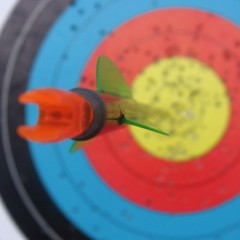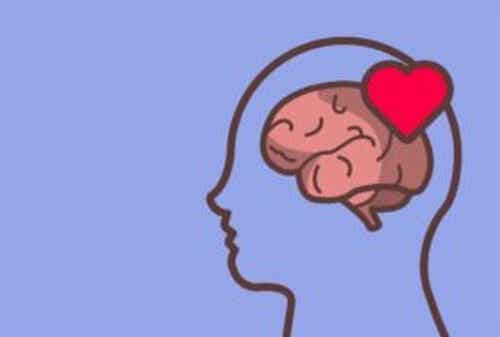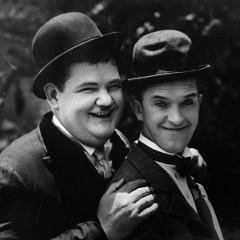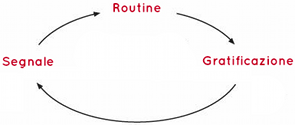Change habits, change your life, reinvent yourself: who among us hasn't wanted it at least once in their existence? Yet when we decide to make a change we often make this mistake. Let's find out what it is and how to avoid it.

"Motivation is what gets you started, but habits that keep you going."
Jim Rohn.
Being, doing, having: what you do wrong when you try to reinvent yourself

"Reinvent yourself","Change","Turn the page“: These words and expressions often evoke ambivalent emotions.
On the one hand, they light us up, they give us a boost, they excite us, they bring us closer to the idea of what we could have, or to the person we could become.
On the other hand, they frighten us, paralyze us, make us doubt our abilities because they involve our own active commitment e concrete to travel that journey that from point A in which we find ourselves today, will lead us to the much sought-after point B in which we wish to find ourselves.
In short, everyone would like to change, but few are willing to do the sacrifice necessary to face the transition that will lead us to the new conquest.
Historically, the weapon we have always relied on to face the challenge of change in the best possible way has been that of motivation: to seek that thrust of inspiration and good will that could support us and recharge us with energy, so as not to be discouraged and complete our mission.
But motivation has limits that you will surely have already experienced on your skin.
When the motivation is there, in fact, you feel strong, sure of yourself, determined, almost invincible. And maybe you decide - as millions of people do every year - to go on a diet!
But when, after a couple of days or a couple of weeks, your motivation drops, you find yourself drained and disoriented to deal with the usual bad habits.
… And this is exactly what happens to 90% of people who, 12 months after starting the diet, find themselves fatter than before!
This is why if we want to promote changes that are actually sustainable over time, we must go and look not so much (or not only) there motivationbut effective habits that sustain this change over the long term.
In short, for reinvent itself the initial motivational push is not enough: we need the constancy that only habits can give us.
It is precisely the habits, in fact, that a 1% at a time shape the kind of person you are and will become: thanks to their automatic nature, in a slow but unstoppable way they mark your actions, your ways of being, of relating to yourself, to others and to everything around you.
GetPersonalGrowth has on several occasions launched practical and interesting stimuli on the how new habits are created.
That is why today I would like to approach the subject from a different angle and explain to you what the habits based on identity and why they are so effective.
To do this, we'll start by seeing a good habit that many Effective probably already have: the to-do list (the to-do list). Here, in the next few lines I will reveal to you how 99% of people use this habit in the wrong way.
The naive to-do list: what do I have to do to get?

La to-do list it's nothing more than a to-do list.
Getting into the habit of keeping track of these activities is a pretty simple operation, but with enormous power: it frees your mind from a lot of worries, helps you stay on track and makes the most of the time you have available.
Many manuals have been spent on how to transcribe the actions within the to-do list, and it is not my intention to present you with a review of the different variations on the subject.
Instead, I want to look at the standard technique by which most people create their to-do list. The dynamic that emerges, in fact, will help us to understand something very important about each of us.
When it comes time to plan for a certain change, the question we tend to ask ourselves is:
"What do I have to do to get X?"
So let's think about what behaviors we need to do in practice, and we report in our list a list of actions necessary to get closer to the goal (to have).
I'll give you a personal example.
Suppose I have set out to publish a new book within a year or so. Proceeding according to the standard reasoning of creating the to-do list I will think: what do I have to do to have the book published in 12 months?
Guided by this question, it will occur to me that I have to do some literature searches, that I have to do a draft index, that I have to have daily writing sessions, that I have to have meetings with my agent, and so on.
All right actions, mind you, but without realizing it I just made a nice mess: I thought about what I owe do to be able have.
What's the problem with all of this?
I haven't come to terms with the most important part of the whole carousel of change: thebe.
So I would like to offer you an alternative ...
Reinvent yourself thanks to the to-BE list

Let's do an experiment.
Let's say that to understand how to have my book in your hands in 12 months, instead of asking myself "what should I do?", I ask myself "who do i have to be".
You will notice that this opens up secret doors never considered before.
Maybe to have a book in bookstores in 12 months I have to be more authentic. Maybe I need to be more in touch with my values. I need to be more organized, with a lot of energy and inspiration.
So, to be all of this, what must I do?
Maybe a little meditation every day, maybe a trip to a place that inspires me, or keep a diary to get more in touch with my emotions. Maybe I should attend a time management course, or, again, I should surround myself with people who inspire and energize me.
As you can see, I still came up with a to-do list, but this is it a doing in the service of being, not to have.
A "to-be list"Developed alongside a"to-do list"Allows you to implement more meaningful, incisive and effective behaviors in accompanying you towards your goals.
And so we come to talk about habits based on identity ...
Habits based on identity
Even when we talk about habits we don't have to stop at layer of making to have, but rather we must go into the core of the change, that is to try to intervene a identity level.
We imagine the change as if it were one onion consisting of three layers:
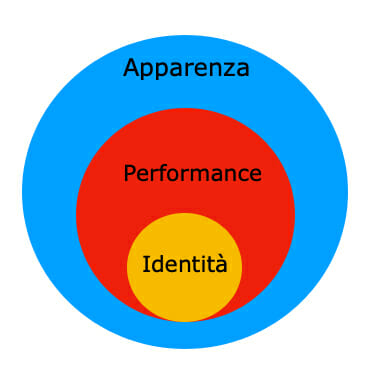
- The external one we can call it layer of appearance,
- the middle one is lo performance layer,
- while in the heart of our onion there will be theidentity.
Now, let's say I want to have a fitter body, and therefore decide to lose 20 kg (change in appearance).
Great: what should I do to lose weight (performance actions)? Go to the gym? Eat different? Run? Of course yes, obviously you don't lose weight just with the thought.
However, if I stop at these reflections without acting on the level of being (i.e. the identity part), after a while I will feel a difficulty in being continuous in the change, I will begin to procrastinate some behaviors and I could even abandon the idea of getting back in shape.
A change that aims to be sustainable in the long term must at least question how to involve the core of our being. In short, we must bite into the onion all the way and ask ourselves:
“Who should I be to lose 20 kg? "
Maybe you should be one of those people who never even skips a workout. Maybe it might be convenient for you to get to know a little more closely those who have already succeeded in this enterprise, understand how they think, what they eat, how they cope with crises or obstacles along their life path. Knowing his values, his goals, which reading he prefers and in which activities he does not waste time and energy: these are all elements that will help you set a direction for yours. be, more functional to achieve the purpose you have set for yourself.
The work on identity, as you will have understood, can be very long and sometimes even requires the intervention of a psychologist.
However, some tools belonging to the self-help sphere can help you take an important first step in change your identity.
Let's see them.
Developing a new mindset in three steps

Reinventing yourself, revisiting your identity and then acquiring a new mindset is a bit like climbing a ladder made of three steps.
The first step has to do with the study of the new mindset.
1. Know the new mindset we want to acquire
Let's say you want to become more productive in the world of work and, to do this, you'd like to acquire one first entrepreneurial mindset.
The first step I suggest you take is to understand the needs that move entrepreneurs in their actions: what turns them on, what recharges them, how they unravel problems, what doesn't make them sleep at night.
To focus on these elements, you must first of all hang out with entrepreneurs.
You could read some books written by them, sign up for a workshop to approach them, have lunch with an entrepreneur you would like to employ as your development model, and so on.
The idea behind this first step is that you have to study what you would like to acquire, not so much to copy it exactly as it is in your life, but rather to be inspired by new ways of approaching the world, in order to integrate new inputs into your usual modus operandi.
2. Practice your new identity
After understanding the logic of the mental functioning of that particular identity, you must put it into practice, in order to master it to the fullest. The more you will experience what you have intuited from the analysis of the previous step, the more you will be able to make the new attitude your own.
At this stage it is important to put aside the fear of others' judgment, and be ready to fail.
In fact, we are not interested in achieving a certain goal, but explore the path that could lead us to him.
3. Share your experience with others
The last step involves sharing your experience with others. You could talk about it with friends, family, or even strangers you met on the web.
An idea that you can consider is to publish your article online, in which you report what you have understood in the light of the experience just made. You can write down the new ideas you've brought home, the changes you'll implement in your life, or the dynamics you just don't like.
I realized the importance of this step in my video making business.
Make a different video for mine every day Youtube channel, explaining to laymen how psychology could bring value into their lives, was an operation that profoundly changed me.
On the one hand, the fact of having to speak in public about psychology made me mentally review the things I had to say on video over and over again, forced me to question myself on the logical thread that linked the various arguments and pushed me to learn some psychological theories to perfection .
On the other hand, the idea that there were people who listened to me, criticized me or told me that they found themselves in what I was saying, helped me to embody myself in the potential objections of others, and to delve deeper and deeper into my position with respect to a certain topic. Not only did I become more and more competent, but those notions almost entered my DNA, they became - precisely - a part of my identity.
Conclusions: Being, Doing, Having

Basically there are two trains that we can consider taking to get to our destination.
- The first starts from the end and makes us ask: if I want to have this thing, what must I do to be able to get it and finally be happy?
- The second instead overturns this paradigm and proceeds in the opposite direction: who do I have to be to be able to do those actions that will allow me to have?
The road to change - but also to happiness - must never start solely and exclusively from having. Because in life you first become, then you do and finally you get.
"Because in life you first become, then you do and finally you get."
If you ignore this law of nature, I fear that at some point you will feel like you are spinning around and find yourself totally dissatisfied with your existence.
What do you think about it? Have you ever tried to work seriously and scientifically on your habits to build solid, virtuous and "winning" ones?
I'm curious to read your experience in the comments to this article.
In the meantime, if you are interested in learning more about the subject, know that the famous book I cited as an example I finally wrote. Is titled "Factor 1%: small habits for big results". In this manual I provide practical, concrete and simple indications to get you a little closer to the best version of yourself every day ;-).





